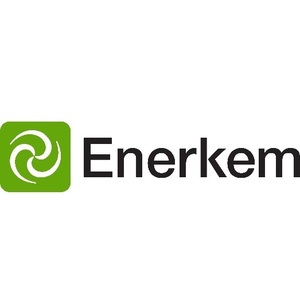Enerkem produces bio-DME

September 11, 2018
BY Enerkem Inc.
Enerkem Inc., a world-leading waste-to-biofuels and chemicals producer, announced Sept. 10 that it has successfully produced a clean, renewable bio-dimethyl ether (bio-DME), a byproduct of biomethanol, that could help address global climate change efficiently by replacing the use of diesel fuel in the transportation sector.
Using the company's proprietary thermochemical technology, its innovation group has tested and validated the production of fuel-grade bio-DME made from unrecoverable carbon-rich municipal solid waste. More than 1,000 hours of operations at its Innovation Centre in Westbury, Quebec, have been completed.
While Enerkem is currently focused on the commercial production of biomethanol and advanced ethanol as sustainable biofuels replacing gasoline, this new development reaffirms the company's continued innovation leadership as well as having the potential to expand the company's biofuels business for the transportation sector.
Advertisement
"Diesel fuels are three times more polluting than a waste-derived DME-based fuel,” said Stéphane Marie-Rose, director of Enerkem's Innovation Centre in Westbury. "According to the Intergovernmental Panel on Climate Change (IPCC) Climate Change Synthesis report, more than seven gigatonnes of CO2 equivalent are attributed to the transportation sector globally. By replacing diesel fuel with a clean, renewable bio-based fuel alternative, such as bio-DME, we could significantly and instantly reduce greenhouse gas emissions."
Bio-DME offers a 20 percent higher cetane rating on average than diesel or biodiesel fuels (cetane rating is to diesel engine what octane rating is to gasoline engine). Moreover, DME combustion does not produce sulfur oxide (SOx) or fine particles, and it contributes to lower emissions from other harmful residual pollutants such as nitrogen oxides (NOx) that are mainly produced from the combustion of fossil-based fuels.
Advertisement
In addition to the various environmental and economic advantages, there are many possible applications for waste-derived bio-DME fuel. For example, it could be used to replace diesel fuels used in cars, trucks, trains or even ships, while providing better, cleaner combustion.
Enerkem intends to further develop and optimize this latest innovation while evaluating its potential commercial applications.
Related Stories
The U.S. Energy Information Administration maintained its forecast for 2025 and 2026 biodiesel, renewable diesel and sustainable aviation fuel (SAF) production in its latest Short-Term Energy Outlook, released July 8.
XCF Global Inc. on July 10 shared its strategic plan to invest close to $1 billion in developing a network of SAF production facilities, expanding its U.S. footprint, and advancing its international growth strategy.
U.S. fuel ethanol capacity fell slightly in April, while biodiesel and renewable diesel capacity held steady, according to data released by the U.S. EIA on June 30. Feedstock consumption was down when compared to the previous month.
XCF Global Inc. on July 8 provided a production update on its flagship New Rise Reno facility, underscoring that the plant has successfully produced SAF, renewable diesel, and renewable naphtha during its initial ramp-up.
The USDA’s Risk Management Agency is implementing multiple changes to the Camelina pilot insurance program for the 2026 and succeeding crop years. The changes will expand coverage options and provide greater flexibility for producers.
Upcoming Events










